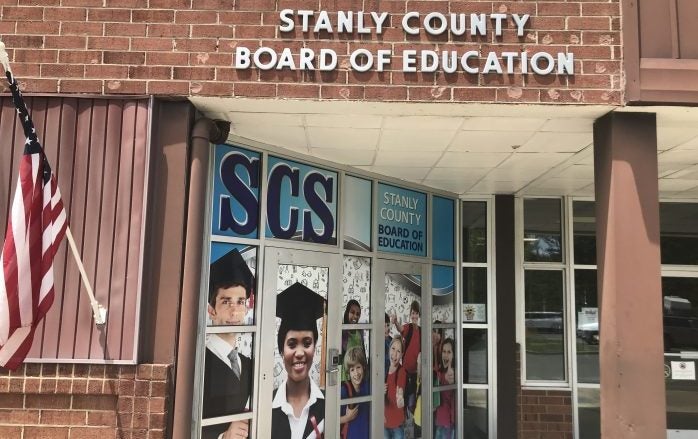Stanly County Schools looks to improve EC reading scores
Published 10:47 am Thursday, October 22, 2020

- Stanly County Schools is headquartered in Albemarle.
|
Getting your Trinity Audio player ready...
|
Exceptional students enrolled in Stanly County Schools may soon get a new program to help with low reading test scores.
At Monday’s online meeting, SCS’s Instruction Committee passed a motion to spend approximately $50,000 for a program called Xtreme Reading.
The reason for the approval of the new program came from low proficiency numbers for SCS’s EC students, which Assistant Superintendent of Curriculum and Instruction Dr. Amy Blake-Lewis said “will be very shocking to you.”
Blake-Lewis said the state’s target for reading proficiency among EC students is 56 percent, but Stanly’s numbers from the 2018-19 testing data are well below that. She explained reading proficiency data comes from grades 3-8 and from 10th grade when students are in English II.
According to the numbers Blake-Lewis reported, third graders are at 18 percent proficiency, fourth graders at 19 percent and fifth graders were 13 percent. The numbers climbed to 21 percent for sixth grade but dip to 8 percent for seventh graders and 12 percent for eighth grade. Tenth graders were at 13 percent.
Blake-Lewis said she sat down for “some very candid conversations” with Dr. Laura Holland, director of exceptional children for SCS, about EC teachers, instruction and meeting individual education plans (IEPs).
She said they agreed the best use for the remaining money from the CARES Act (Coronavirus Aid, Relief, and Economic Security) was to invest in a strong reading program targeted for EC students. EC teachers will need training in the face-to-face teaching program, which Blake-Lewis said would be part of the day-to-day teaching schedule taking approximately 30-45 minutes.
With the committee’s approval, Blake-Lewis said she will bring a purchase order to the next full meeting of the school board for final approval and will inform board members of the price before the full board meets.
After buying the program, Blake-Lewis said the program would only require “a small purchase price for consumable items” but would not be a major purchase every year.




